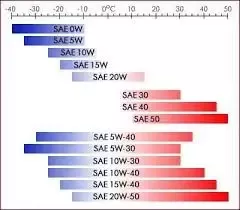Engine oil consumption occurs when an engine uses or loses oil at a rate faster than what is considered normal. Let’s delve into the details:
- Normal vs. Excessive Oil Consumption:
- The definition of “normal” oil consumption varies depending on the specific engine. Each engine has its own recommended oil change interval and may burn oil at different rates compared to others.
- As a general guideline, if an engine requires one quart of oil every 3,000 miles or less, it could be a sign of excessive consumption.
- Common Causes of Excessive Oil Consumption:
- Worn Gaskets: Gaskets, which seal parts together, can wear out due to age. When this happens, oil may leak out, either onto the ground or within the combustion chamber. Worn valve seals and valve guides can also contribute to excessive blow-by in the combustion chamber, leading to oil consumption.
- Oil Quality: Using the incorrect type of oil can damage the engine and void the powertrain warranty. Manufacturers often create specific oil blends for certain engines, and not using these or similar types can lead to increased internal part wear and higher oil consumption.
- Worn Piston Rings: Piston rings prevent oil from entering the combustion chamber. If these rings wear out, oil can escape, resulting in either burning off or creating carbon deposits that affect engine performance and fuel economy.
- Age: As an engine age, parts and seals can wear out, leading to oil leakage or consumption.
- Driving Style and Maintenance: Factors such as driving style, oil change frequency, and the type of oil used can impact oil consumption.
- Specific Models: Some vehicle models are more prone to excessive oil consumption than others.
- Consequences of Excessive Oil Consumption:
- Decreased Lubrication: Engine oil lubricates moving parts. Insufficient oil due to excessive consumption can lead to increased friction and wear.
- Increased Emissions: Burning oil produces harmful emissions like carbon monoxide and hydrocarbons.
- Reduced Fuel Efficiency: Excessive oil consumption can negatively affect fuel efficiency.
Remember that regular maintenance, using the correct oil, and addressing oil leaks promptly can help mitigate excessive oil consumption and keep your engine running smoothly.
Read More: How to Fix Engine Oil Consumption?


